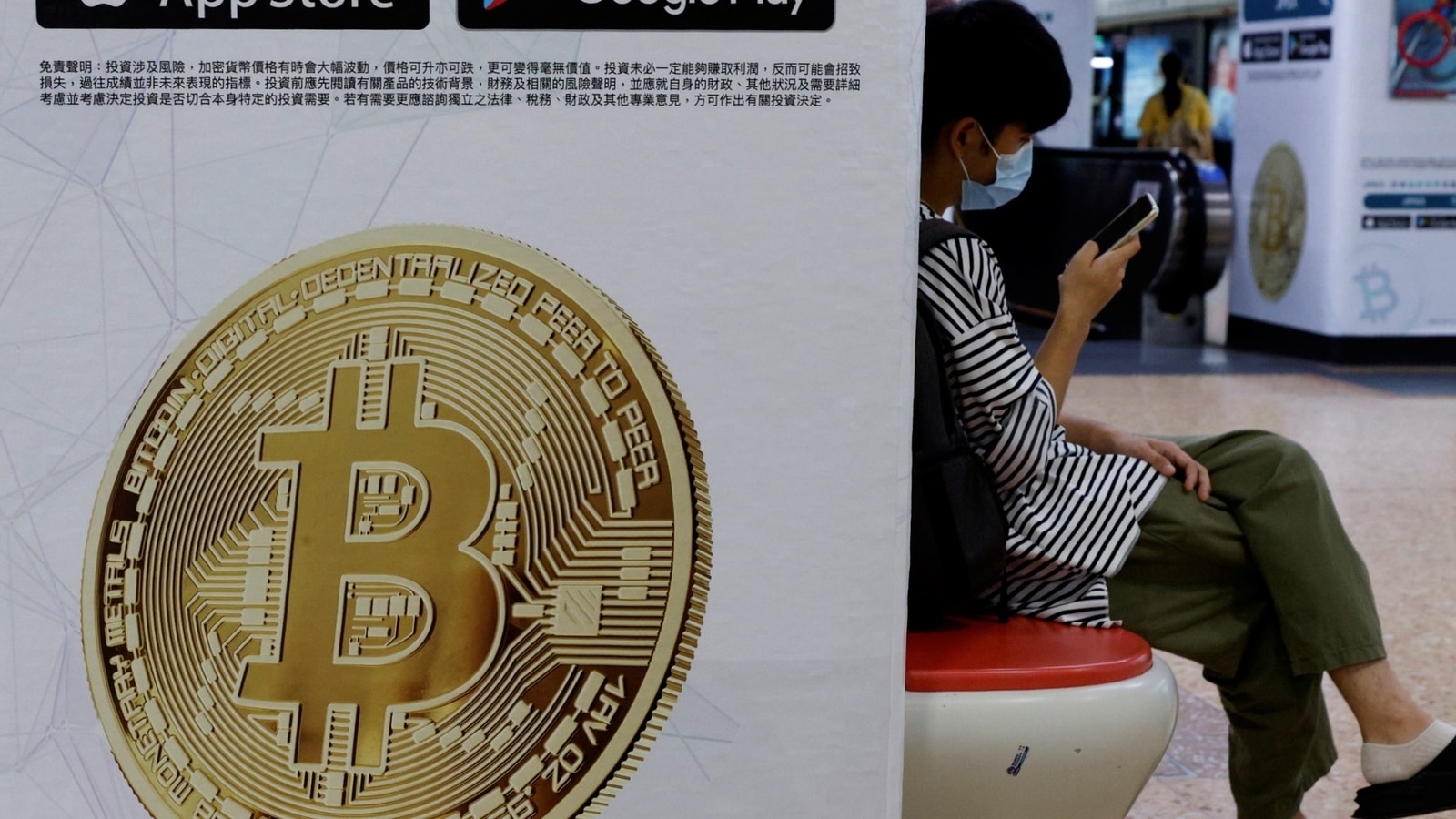Cryptocurrency: Bitcoin, Dogecoin, Shiba Inu, Hyperinflation, Jack Dorsey and Twitter?
- Cryptocurrency: Bitcoin, Dogecoin, Shiba Inu, Hyperinflation, Jack Dorsey and Twitter; what gives in the world of crypto?

Cryptocurrency Bitcoin: The old adage of advertising is: “Sell the sizzle, not the steak.” When it comes to cryptocurrencies, the sizzle-to-steak ratio is off the charts. A flurry of ads for new digital tokens on the London Tube are dangling “BIG” gains ahead. One promises to be the life-changing crypto for all those who “missed” out on Dogecoin, a Shiba Inu-themed memecoin that saw huge gains earlier this year as Covid-19's third wave raged. Another ad for a trading app suggests anyone intimidated by the asset class should “sit back, relax” and let algorithms handle their trades.
This is an unsettling global trend: The crypto industry is recycling lockdown profits into brash marketing and slogans designed to jolt people into coming back for more. The Paris metro was recently plastered in crypto ads mocking the weak purchasing power of those stuck in regular savings accounts. In the U.S., Spike Lee is the face of crypto ATM ads offering “new money” amid footage of burning banknotes.
The main power of these ad campaigns comes from driving a Fear Of Missing Out (FOMO). Technology rarely features. The risk of volatile prices and financial losses is relegated to teeny tiny small print. It's potent stuff: A U.K. Financial Conduct Authority survey published this month found that 58% of people trading high-risk products like crypto were encouraged by social media and their friends.
Some kind of clean-up would be welcome, even if cash-strapped sectors like public transport have to settle for less money from the crypto sector's deep pockets. There have already been some ad bans in the U.K., where watchdogs decided several marketing campaigns were misleading and irresponsible. One of them, banned in March, targeted pensioners — who would have needed thick skin for the subsequent 48% drop in Bitcoin's price. (London's transport agency this week told the Financial Times that it is not its job to check that ads follow the rules.)
But a crackdown on risky or fraudulent ad campaigns is not a magic wand. The post-Covid world has created a bull market for viral economic narratives that offer easy answers to a complicated world — and it goes way beyond billboards.
Social media, for example, is clearly going to be a far bigger battleground for regulators. Networks like Alphabet Inc.'s Google and Facebook Inc. imposed bans on a lot of crypto ads in the midst of Bitcoin's last big boom-and-bust cycle in 2018, but they're lifting restrictions now. Big Tech firms seem emboldened by increased adoption, regulation and their own crypto strategies. Self-regulation still seems the order of the day here.
The role of social-media influencers in pushing investors' buttons is also growing. It's no longer just the likes of “cryptopump999” repeating “Bitcoin is inevitable” or “HODL.” Some of the richest people in the world are hyping Bitcoin as a hedge against imminent economic catastrophe, no matter how thin or nonexistent the evidence.
Twitter Inc.'s billionaire Bitcoiner boss, Jack Dorsey, tweeted last week: “Hyperinflation is going to change everything. It's happening.” He added: “It will happen in the U.S. soon, and so the world.” The tweet set off a festival of replies from Bitcoin evangelists, commanding followers to buy more. It doesn't matter that even a U.S. inflation rate at 5% is still nothing like hyperinflation, or that Bitcoin has largely failed as a portfolio hedge throughout its history. Decisions will be made based on perception rather than reality.
Robert Shiller has rightly identified crypto as a pure example of narrative economics: “A contagious story that has the potential to change how people make economic decisions.” The sizzle becomes irresistible.
So while regulators should focus on fraudulent and risky crypto ads, society needs to work too on improving financial and digital literacy for a generation that feels it's running out of time to build wealth. Social media isn't going anywhere, and neither is fintech — if anything, they've accelerated since the pandemic, as have their risks. In the meantime, we can only try to imagine what an honest crypto ad would look like.
This column does not necessarily reflect the opinion of the editorial board or Bloomberg LP and its owners.
Lionel Laurent is a Bloomberg Opinion columnist covering the European Union and France. He worked previously at Reuters and Forbes.
Catch all the Latest Tech News, Mobile News, Laptop News, Gaming news, Wearables News , How To News, also keep up with us on Whatsapp channel,Twitter, Facebook, Google News, and Instagram. For our latest videos, subscribe to our YouTube channel.































